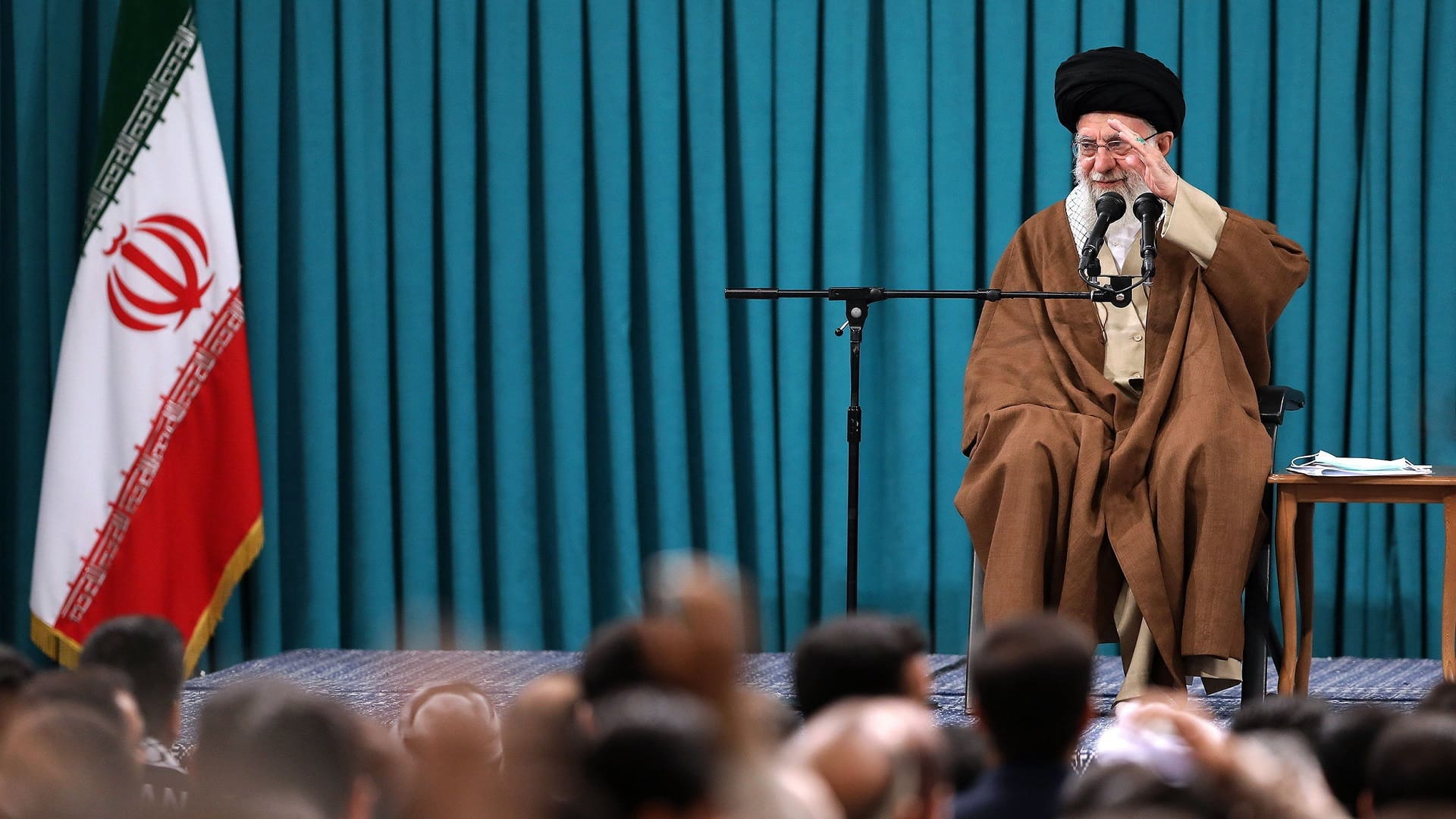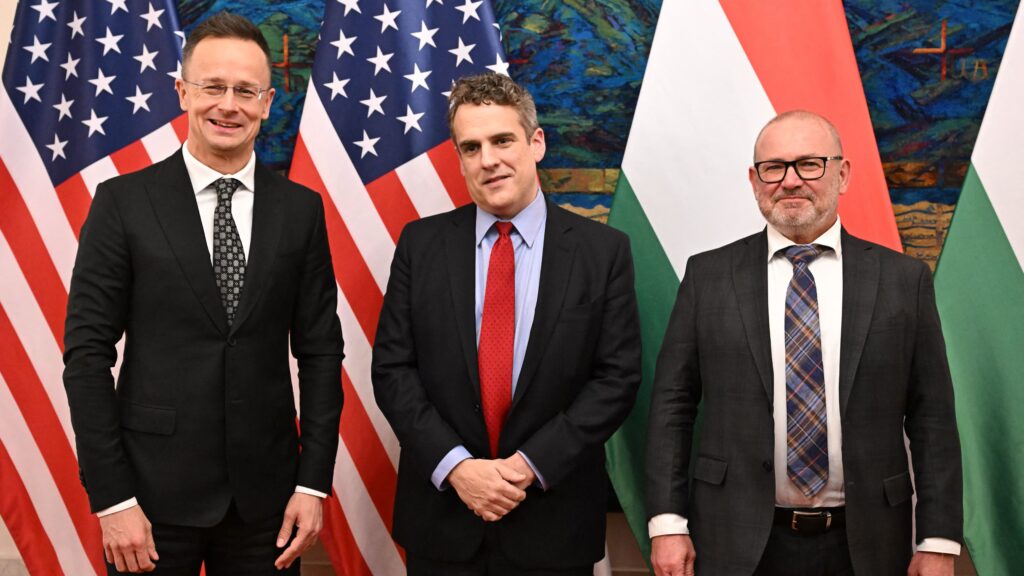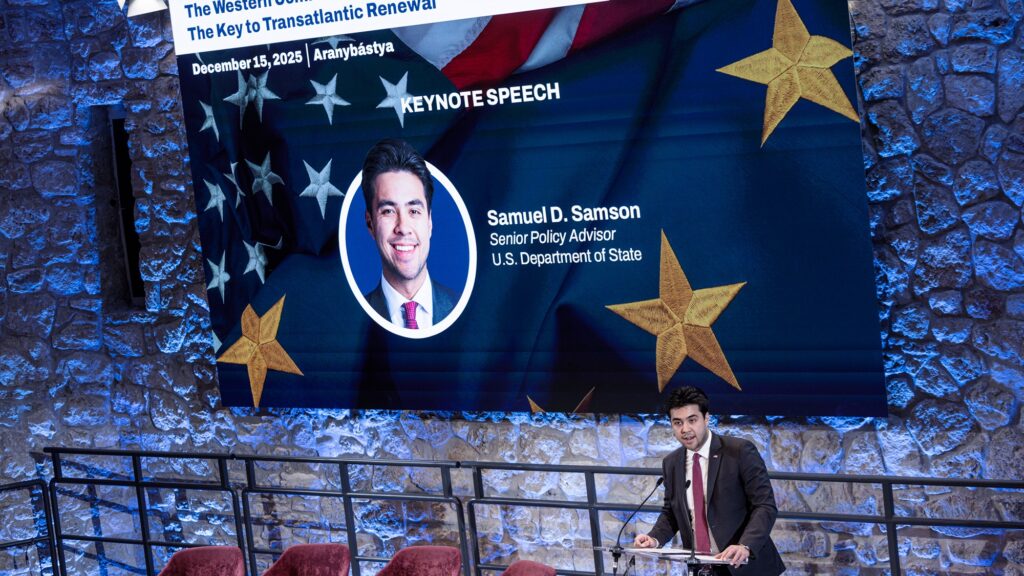Last month, the Islamic Republic of Iran’s newly-appointed ambassador to Hungary, Morteza Moradian, presented his credentials to Hungarian President Katalin Novák. During the meeting, Novák expressed her satisfaction with the good relations between Iran and Hungary in various fields and described the capacities of the two countries to develop relations especially in the economic, scientific, and cultural sectors as satisfactory.
Understanding the necessity of diplomacy, even between warring nations, the apparent Hungarian openness to Iran, as that of the other EU Member States, is perplexing. Iran’s role in its involvement against Israel and the Jews is increasing as the theocratic regime continues to both celebrate the terrorist atrocities committed by Hamas on 7 October and proclaim from the rooftops ‘Death to Israel’. Indeed,
on 29 November, on the occasion of the International Day of Solidarity with the Palestinian People, Iranian President Seyyed Ebrahim Raisi condemned ‘the usurper Zionist [Israeli] regime’
and renewed the call for its termination.
In addition, while Hungarian Prime Minister Viktor Orbán is the only EU government leader calling for an immediate ceasefire in the war in Ukraine, Tehran has provided Moscow with armed drones, guided aerial bombs, and artillery shells ensuring the Russians are able to continue their war against Ukraine. It is also suspected that the Iranians are selling advanced short-range ballistic missiles to the Russians, thus ensuring that the war continues.
Hungary, however, is not the only country to take such a pacifying stance with the Iranian regime.
Appeasing Iran
In December 2022, EU Member States adopted new Conclusions on Iran, that of a no bilateral trade agreement as a result of Iran’s gross human rights violations, its exploitation of the Joint Comprehensive Plan of Action, and its support for terrorist organizations in the region, such as Hamas, Hezbollah, the Houthis; as well as armed militias in Iraq. Nevertheless, EU Member States, just like the Biden administration in the US, seem to continue to accede to the demands of a hostile nation in the hope of perhaps achieving peace.
The EU continues to trade with Iran—a move in direct violation of the US sanctions. Total trade in goods between the EU and Iran in 2022 amounted to €5.2 billion. Germany, for example, is the top European buyer of oil and non-oil commodities from Iran according to the Tehran Times:
‘Germany was Iran’s fourth source of import during the five-month period….Iran’s import of goods in the five months of this year reached 14.4 million tons worth $24.2 billion, indicating a 7.49-per-cent growth in value and a 2.17-per-cent increase in weight, year-on-year…The average customs value of each ton of imported goods was $1,677 in the mentioned five months.’
As asked by Dr Majid Rafizadeh, of the Harvard International Review and president of the International American Council on the Middle East, don’t these so-called ‘good relations’, as described by President Novák, ‘make them accomplices?
Halting the Appeasement
In a bipartisan measure on 30 November, the US House of Representatives, by a vote of 307-119, passed the bill titled No Funds for Iranian Terrorism Act, which effectively blocked Iran from ever accessing the $6 billion recently transferred by Washington in a prisoner swap.
Republicans held the Biden administration accountable for what they call complicity in funding Iranian-backed terrorism in the Middle East.
‘With such instability in the region, the last thing we need to do is to give access to $6 billion to be diverted to more Iranian-sponsored terrorism,’ Rep. Michael McCaul, the Republican chair of the House Foreign Affairs Committee, said during a debate.
Iran has already expanded its use of advanced centrifuges and underground nuclear facilities, which has multiplied its stockpile of uranium far beyond the regime’s expectations. And, in its rebuffing of inspectors of the International Atomic Energy Agency, it carries itself like a country seeking to gradually build a nuclear weapons capability. In the end, diplomatic efforts to contain Iran have not just failed, but also provided the regime with more time to increment its nuclear aspirations and further oppress its people. Appeasing Iran, as then Prime Minister Neville Chamberlain did with Adolf Hitler in 1938, has only emboldened Iran’s draconian methods.
MAGA War Room on Twitter: “Michael McCaul: “I’m getting a little too nervous with this coziness between Iran and this administration…I would view it as an infiltration or opening of the gates of Iran into our government.” pic.twitter.com/R11jIN7qD8 / Twitter”
Michael McCaul: “I’m getting a little too nervous with this coziness between Iran and this administration…I would view it as an infiltration or opening of the gates of Iran into our government.” pic.twitter.com/R11jIN7qD8
The Solution
First and foremost, we need a strong and united leadership against the Islamic Republic of Iran, especially in the US. One that is going to be bold enough to call out any hostile regime, and not just Iran, as evil and a threat to the human race.
I grew up during the latter part of the Cold War, when the US, as leader of the free world, successfully held off the communist menace of the Soviet Union. President Ronald Reagan’s uncompromising position, to the point of calling the communist USSR the ‘evil empire’, helped to not only end the threat of nuclear war, but help bring an end to the Soviet empire as well. This is what we need today, not the appeasement of the Obama administration, or President Joe Biden’s ‘relax[ing] some enforcement of sanctions on Iranian oil sales’. This has only put cash into the hands of the mullahs, which they then funnelled to fund terrorists and their murderous exploits.
The second, albeit, unfortunate card on the table is the use of force. A sophisticated Western-style military campaign, one that would target some of Iran’s industrial and nuclear facilities, or even leadership, would most definitely result in the termination of the Islamic Republic.
Dissenters hold that this would escalate the conflict in the region and eventually open up to a full-scale war. Iran’s military capabilities, however, are not as strong as its volatile rhetoric—it relies on its precision ballistic missiles and drones that can be readily shot down, naval forces, and the use of partners and proxies abroad.
Iran also has no aircraft that can compete with US power projection assets or the first-line assets of America’s European strategic partners. Also, according to the former consultant to the US State Department, Anthony H. Cordesman,
Iran knows that to engage in a war with the US and its allies would be suicide:
‘The US (and Arab and Israeli) focus on the potential nuclear threat from a future nuclear-armed [Intercontinental Ballistic Missile] is valid, but it is only part of the story. It also ignores the fact that any actual Iranian use of nuclear weapons—like a strike by North Korea on outside targets—would probably trigger the destruction of Iran. As Henry Kissinger once remarked in a different context, the threat of committing suicide is a poor deterrent to being murdered.’
In addition, when then-President Donald Trump killed the head of Iran’s elite Quds Force, General Qasem Soleimani, with a drone airstrike near Baghdad's airport in January 2020, critics said this would draw the US into a war with Iran. Ultimately, however, the regime was handcuffed for the only thing it respects is power it cannot compete with.
Norman T. Roule, a former National Intelligence Advisor for Iran, explains how Iran’s leaders are facing the terminal decline of the theocratic regime, and the steps required to reverse this trend would unravel the revolutionary system itself.
‘The country’s ossified and incompetent leadership’, Roule says, ‘is sustained by overt election manipulation, coercion, corruption, and stale revolutionary rhetoric. The most significant portion of Iran’s population appears divided between disillusioned Iranians seeking regime change and those unwilling to confront a regime they no longer support. Iran’s rising generations look across the Gulf waters to see vibrant societies bursting with economic promise and increasingly global influence.
If the West has substantial reasons to avoid conventional conflict with Iran, Tehran’s reasons to avoid such a conflict are existential’.
Iran is now flexing its muscle with its newly developed a new hypersonic ballistic missile and a new sophisticated warship for its Caspian Sea fleet. Also, its proxies have carried out dozens of attacks on American bases and interests in the Middle East since Hamas attacked Israel.
Yet before a military operation is even conceivable, Washington and the EU Member States must abandon the so-called ‘good relations’. There is nothing good in a 'relation' where the other side is going to profit from it, and thereby continue to sponsor terrorists. After all is said and done, then perhaps we can discuss, or even assume, ‘good relations’.
Realted articles:







